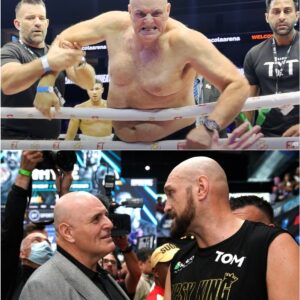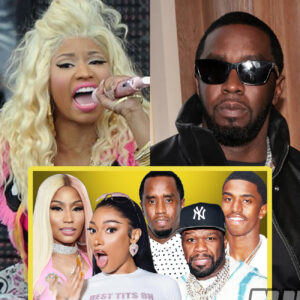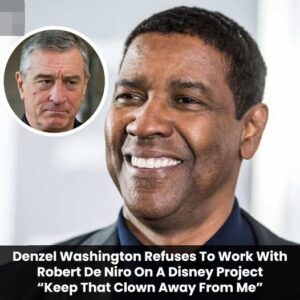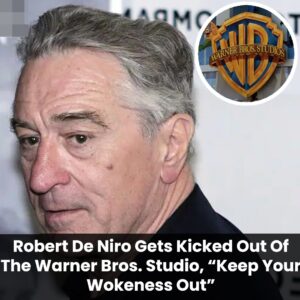### Cat Williams Blasts Tyler Perry and Oprah Winfrey: A Deeper Look at Hollywood’s Alleged Blacklist
In a recent viral tirade, comedian Cat Williams did not hold back, accusing Tyler Perry and Oprah Winfrey of being complicit in the systemic suppression of Black entertainers in Hollywood.
Williams’ rant has ignited a flurry of discussions across social media, bringing to light longstanding allegations from several prominent figures in the industry, including Mo’Nique, 50 Cent, Ludacris, and Dave Chappelle.
These claims, if true, paint a disturbing picture of Hollywood power dynamics and raise critical questions about the treatment of Black talent in the entertainment industry.

#### Cat Williams’ Allegations
Cat Williams is no stranger to controversy, often using his platform to critique the entertainment industry. In his latest salvo, he targeted Perry and Winfrey, alleging that Oprah has a hidden agenda to undermine Black entertainers and uses Perry as a pawn in her schemes.
Williams’ accusations are part of a broader narrative involving other Black celebrities who have made similar claims against the influential duo.
#### The Mo’Nique Saga
The most high-profile case in this saga involves comedian and actress Mo’Nique. Her fallout with Tyler Perry, Oprah Winfrey, and director Lee Daniels stems from her role in the 2009 film “Precious.”
Despite the film’s success, Mo’Nique has long asserted that she was blacklisted after refusing to participate in unpaid promotional activities.
According to Mo’Nique, she was paid $50,000 for her role, a modest sum given the film’s eventual success. She declined to do additional press work without further compensation, which was not stipulated in her contract.
Mo’Nique’s refusal led to a series of damaging rumors about her being “difficult” to work with, a narrative that she claims was perpetuated by Perry and Winfrey.
In a publicized phone conversation, Perry allegedly tried to persuade her by emphasizing the financial benefits of promoting the film, an offer she rebuffed. The subsequent fallout saw her being ostracized from many mainstream projects, severely impacting her career.
In a more personal affront, Mo’Nique accused Oprah of betraying her trust by interviewing her estranged family, including her brother who had previously molested her.
This interview, conducted without Mo’Nique’s consent, was seen as a deeply personal attack, exacerbating the animosity between them.
50 Cent and Ludacris Speak Out

Rapper 50 Cent has also been vocal about his disdain for Oprah, accusing her of being biased against hip-hop and Black artists.
He claimed that Oprah’s platform catered primarily to older white women and that she systematically avoided engaging with artists whose work reflected the gritty realities of urban life.
50 Cent went as far as to label Oprah an “Oreo,” insinuating that she presents herself as Black outwardly but aligns with white interests.
#### Dave Chappelle’s Revelation
Comedian Dave Chappelle’s story adds another layer to these allegations. Chappelle appeared on Oprah’s show after his abrupt departure from a $50 million contract with Comedy Central.
He explained that the pressures and ethical dilemmas in Hollywood drove him to retreat to South Africa. His decision to walk away from such a lucrative deal was widely scrutinized, but Chappelle’s account highlighted the toxic environment that he felt suffocated creative freedom and moral integrity.
#### The Broader Implications
These testimonies underscore a troubling pattern of influential Black figures feeling marginalized and manipulated by some of the industry’s most powerful individuals.
The allegations suggest a form of gatekeeping that disproportionately affects Black talent, hindering their ability to navigate and succeed in Hollywood on their own terms.
Oprah Winfrey and Tyler Perry have been lauded for their contributions to Black culture and media.
However, these recent allegations cast a shadow over their legacies, suggesting that their influence may come at a cost to other Black entertainers.
#### Conclusion
Cat Williams’ recent comments have reignited a critical conversation about power, race, and representation in Hollywood. While the specific details and motivations behind these accusations can be complex and multifaceted, the recurring themes of exploitation and marginalization are hard to ignore.
As the discourse evolves, it is crucial for the entertainment industry to address these issues transparently and work towards creating an environment where all talents, regardless of their background, are treated equitably and with respect.
The testimonies from Mo’Nique, 50 Cent, Ludacris, and Dave Chappelle highlight the need for a cultural shift that values and uplifts Black artists without subjecting them to undue prejudice and control.
Only through such changes can Hollywood truly reflect the diversity and dynamism of the stories it seeks to tell.
News
Drama in the Ring! Tyson Fury Terminates John Fury’s Role as Trainer After Brutal Upset by Oleksandr Usyk
In a dramatic turn of events, Tyson Fury has decided to terminate his father John Fury’s role as his trainer following a brutal upset by Oleksandr Usyk. The unexpected loss has sent shockwaves through the boxing community and led to…
(VIDEO) Megan Thee Stallion BAITS Nicki Minaj into another rap beef? | 50 Cent DRAGS Diddy’s son Christian
**Christian Combs Disses 50 Cent and 50 Responds: A Clash of Hip-Hop Titans** In the realm of hip-hop, beefs and controversies are almost as common as chart-topping hits. Recently, a new chapter unfolded in the ongoing saga between Christian Combs,…
Breaking: Gordon Ramsay Throws Robert De Niro Out Of His Restaurant, “Don’t Come Back Here You Woke Baby”
In a dramatic and unexpected turn of events, renowned celebrity chef Gordon Ramsay has made headlines by reportedly throwing Academy Award-winning actor Robert De Niro out of his restaurant. The incident, which has sparked widespread media attention and public debate,…
(VIDEO) Joe Rogan & Matthew McConaughey Exposes 7 Actors Hollywood BETRAYED
**Unveiling the Dark Side of Hollywood: The Stories of Matthew McConaughey, Keanu Reeves, and Wesley Snipes** Hollywood, often seen as a dreamland of glitz and glamour, has a hidden underbelly that reveals a starkly different reality for some of its…
Breaking: Denzel Washington Rejects $100 Million Disney Offer to Work with ‘Woke’ Robert De Niro, ‘He’s a Creepy Old Man’
In a recent turn of events that has left Hollywood in a state of shock and contemplation, Denzel Washington, a figure synonymous with integrity and talent in the film industry, has made headlines by rejecting a colossal $100 million offer…
Breaking: Robert De Niro Gets Kicked Out Of The Warner Bros. Studio, “Keep Your Wokeness Out”
In a shocking turn of events that has sent ripples through Hollywood, iconic actor Robert De Niro was reportedly thrown out of Warner Bros. Studios. The reason cited? Spreading his “creepiness.” This incident has sparked intense debate and controversy, leaving…
End of content
No more pages to load











